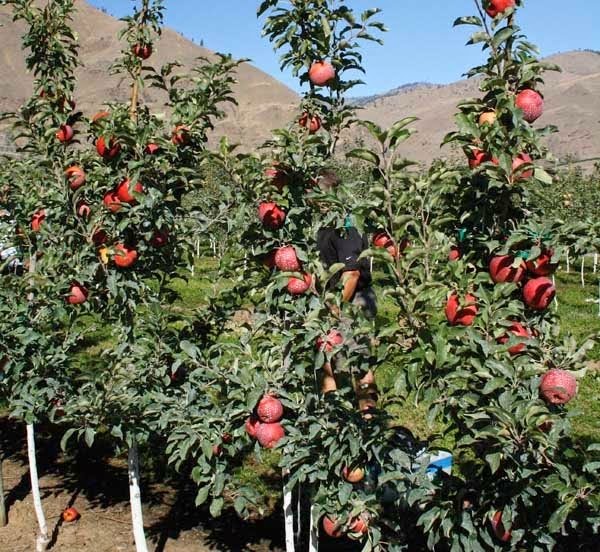Meet the Author
Because she is fairly young and has published only one book, Amanda Coplin's official biography, the one at her official website and at her publisher's website, is only one paragraph long:
Amanda Coplin was born in Wenatchee, Washington. She received her BA from the University of Oregon and MFA from the University of Minnesota. A recipient of residencies from the Fine Arts Work Center in Provincetown, Massachusetts, and the Omi International Arts Center at Ledig House in Ghent, New York, she lives in Portland, Oregon. The Orchardist is her first book.
She opens up a little bit more in an interview with The Oregonian about the important influences in her life and on the story she tells in The Orchardist, especially about having started with her grandfather as a model for the character William Talmadge. She also speaks about her grandfather and other topics related to her book in this on the weekly television show "Well Read." (Her interview is in the first 19 minutes of the video, while in the last part the hosts discuss similar or related books by other authors and have some good reading recommendations.)
The Landscape of the Wenatchee Valley
The Orchardist is set in the Wenatchee Valley of Eastern Washington, "the apple capital of the world," where the Wenatchee River flows into the Columbia. This is where Amanda Coplin grew up, and she mentions in her TV interview about how her characters are influenced by the landscape. I was able to find a few evocative photos online.
 |
| The Wenatchee Valley |
 |
| Lake Wenatchee |
 |
| Peshastin Pinnacles near Wenatchee with Orchard in Foreground |
 |
| Apples Looking Ready for Harvest |
Wild Horses
Eastern Washington is wild horse country. The Appaloosa horse emerged as a distinctive breed in the border region between Washington and Idaho and was highly priced by the the Nez-Perce people, "the finest light cavalry in the world" in their time.
 |
| Fine Appaloosa Horse |
The open range gradually became too small to support wild horses in large numbers, and many of them were rounded up.
 |
| "Last Roundup" in 1906 |
There is now a scenic area in central Washington overlooking the Columbia River, which is called Wild Horses Monument. On a hill in that monument is a series of iron statues titled "Grandfather Cuts Loose the Ponies" by sculptor David Govedare, commissioned on the occasion of Washington State's centennial in 1989.


No comments:
Post a Comment